Category: Bereavement and Grief
Articles dealing with bereavement and grief
Articles dealing with bereavement and grief

When trauma and grief collide after suicide, homicide, or sudden accidents, the pain can feel unbearable. This guide offers practical coping strategies, self-care techniques, and professional resources to help you navigate traumatic loss. Learn the difference between grief support options and discover pathways toward healing.

End-of-life doulas provide non-medical support that transforms dying experiences through education, emotional companionship, and advocacy. Learn how these trained professionals help patients and families navigate terminal illness with dignity, how healthcare providers can partner with doulas, and what to look for when selecting one.

Anticipatory grief is a normal, natural response to an expected loss that shows the depth of your love. This guide explains what anticipatory grief is, why it happens, how grief coaches and licensed counselors can help, and practical steps for families and caregivers to express feelings and find support during this difficult time.

Quality end-of-life care reduces complicated grief among families. Research shows that families who feel supported and witness dignified care experience fewer prolonged grief reactions. Learn how life transition coaches and end-of-life doulas provide essential emotional, spiritual, and practical support that bridges gaps in healthcare, helping families navigate loss with greater peace and understanding.

Despite Medicare's six-month hospice benefit, most patients receive care for only 18-21 days, often when already transitioning to death. Research shows early hospice enrollment can extend life by 29-81 days while dramatically improving quality of life. Life transition coaches help families navigate earlier hospice and palliative care adoption for better outcomes.

A hospice nurse reflects on a powerful moment with a dying patient who painted "Three Wishes"—dandelions symbolizing childhood innocence and life's fleeting nature. This experience teaches us to examine how we're living, who we love, and what matters most. Learn why advance directives and living with fewer regrets matter for everyone.

Explore how aromatherapy and essential oils relieve anxiety, grief, loss, and critical symptoms like pain and nausea across all stages of life. Practical, safe use tips are provided for caregivers, doulas, and health professionals to support holistic well-being.

The RAIN method is a powerful mindfulness technique that helps individuals process grief, loss, and anxiety. This four-step approach—recognize, allow, investigate, and nurture—provides a compassionate way to work through difficult emotions. Learn how caregivers, family members, and end-of-life professionals can use RAIN.
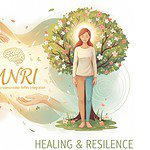
End-of-life doulas play a crucial role in supporting families through grief and trauma. Learn how Masgutova Neurosensorimotor Reflex Integration (MNRI) offers powerful, gentle techniques to help clients process difficult emotions and find healing during life transitions.

A terminal diagnosis sends shockwaves through the lives of patients and their loved ones. This article delves into the trauma experienced by all involved, examining the intricate challenges faced by hospice and palliative care providers in offering compassionate support while navigating the complex emotional landscape of end-of-life care.

Every year, thousands die in emergency departments unprepared for death. Sudden death in hospitals can be especially shocking for patients and families who haven't planned ahead. This guide highlights why preparation is important and describes how end-of-life doulas can assist.

Learn why planning a death vigil early with an end-of-life doula creates meaningful final moments, reduces family stress, and helps prevent complicated grief. Discover the profound benefits of this sacred practice for everyone involved.

Ambiguous loss is a type of grief that happens when loss feels unclear or unfinished. Unlike traditional grief, this emotional pain lacks closure, making it harder to process. Learn to recognize the signs of ambiguous loss and discover practical healing strategies to help you move forward with hope.

Legacy projects offer powerful pathways to closure for both patients facing end-of-life and their families. From memory quilts to ethical wills, these meaningful activities transform difficult goodbyes into lasting connections, reduce anxiety, and provide comfort during grief while preserving precious memories.

Examine the profound impact of hospice care on patients, families, and the healthcare system. This article investigates the physical, emotional, and financial benefits of hospice care, emphasizing its crucial role in end-of-life care and overall healthcare efficiency.
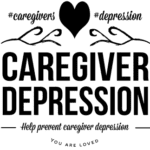
Hospice care not only supports terminally ill patients but also plays a crucial role in reducing depression among caregivers and bereaved families. Discover how compassionate care and targeted interventions make a difference.
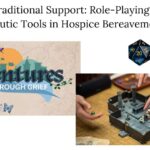
Blue Ridge Hospice's "Adventures in Grief" program uses tabletop role-playing games to help bereaved adolescents and young adults process loss. This article examines this innovative approach, its benefits for grieving individuals and caregivers, and how gamification principles could transform various aspects of hospice care.

Discover the critical role of trauma-informed care in hospice. This guide provides nurses and staff with the knowledge to support traumatized patients while educating caregivers and family members on providing empathetic end-of-life care.

This article delves into the intricate dynamics of hospice nurses’ relationships with patients, examining the benefits and challenges of emotional investment versus professional detachment.

This comprehensive guide simplifies Medicare Hospice Benefits for caregivers and family members. Learn about eligibility, services, finding providers, and more. Empower yourself with the knowledge to make informed decisions about hospice care.
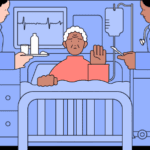
Discover the truth behind the myth that medications can keep terminally ill patients alive indefinitely. This article explores the psychological factors behind this belief and its consequences while providing compassionate strategies to cope with the reality of losing a loved one while ensuring quality end-of-life care.

Discover how to navigate the complex emotions of end-of-life care, particularly anger. This comprehensive guide offers caregivers practical strategies for understanding, managing, and coping with personality changes in terminally ill loved ones.

RUSH Medical Center's Caring for Caregivers (C4C) program offers vital support to those caring for adults 60 and older at home. Learn about the program's comprehensive approach, including skill-building sessions, planning assistance, and care-team coordination. Discover how C4C makes a difference in caregivers' lives and improves patient outcomes.
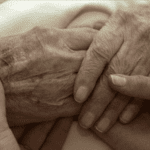
Caring for a terminally ill loved one can be challenging and emotional. As an experienced hospice nurse case manager, you understand the importance of providing compassionate care and support to loved ones and their families. In this educational article, we will explore the common journey that terminally ill loved ones and their caregivers face as they approach the end of life. We will summarize this journey's various aspects, offering guidance and separating fact from fiction.